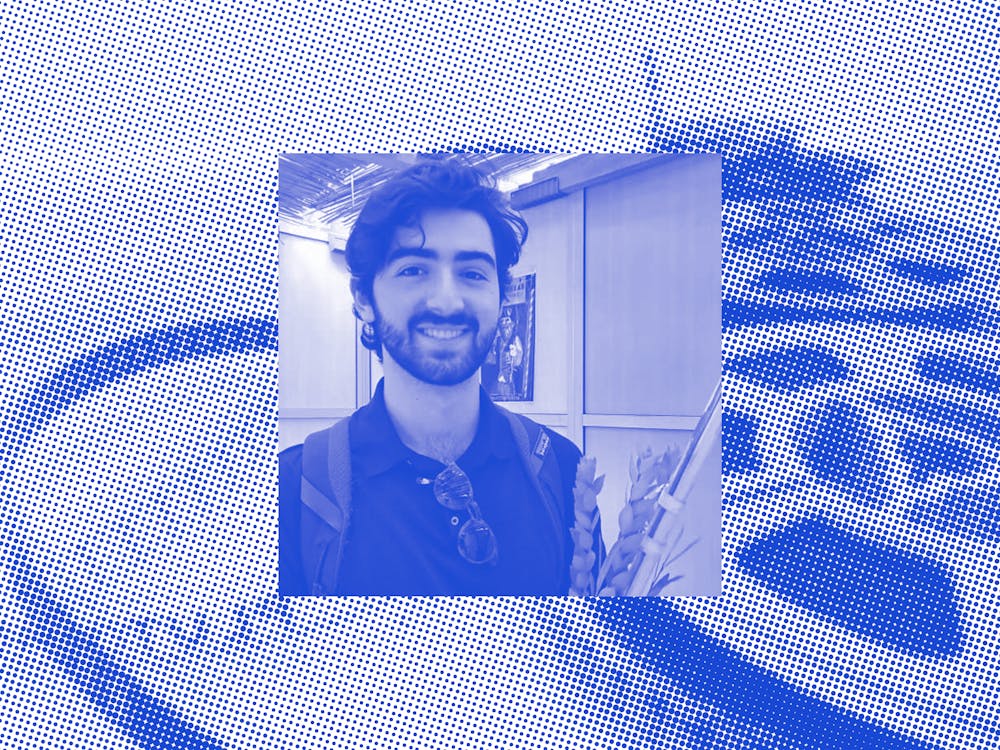I walk towards Houston Hall on a windy, brisk fall day in November. College senior Eli Ricanati calmly waits for me on a bench, in a confident manner. His confidence is warranted, given the success of his first short film released in October: The Frontiers Are My Prison.
The Frontiers Are My Prison tells the story of a schizophrenic author named Oscar as he grapples with his sanity, and the violent story he writes after he stops taking his prescribed medications. Through the film, Eli exposes people’s consciousness and how their creativity can permeate into their real lives if left unchecked. There is also a recurring theme about being a “frontiersman” in the twenty–first century, a concept that goes farther than being settled in uncharted territory.
When asked, he expands on the idea: “For the average person, our worlds are pretty much mapped. I was interested in where the frontier lay if there was still a frontier. And I figured that the final frontier for most of us was our own minds.”
Eli was inspired to display the idea of the frontier after hearing a song from Leonard Cohen, the writer of Hallelujah.
“The song was called 'The Partisan,' and it was about a frontiersman. There’s a line in there, which is the frontiers are my prison. I thought that was incredibly captivating because we spend our whole lives chasing the frontier, chasing understanding. We never stop to consider what happens if we get there and then we can’t leave,” he says.
The film is divided into two sections: the imaginary literary world Oscar crafts and the real world. The two slowly merge as Oscar becomes more lost in his work. The literary world is shot in black and white in a 4:3 aspect ratio, contrasting the color sequences of Oscar in real life.
Eli elaborates on his choice behind filming in black and white, saying, “If you look at any book, what you are looking at essentially is just black text on a white page. You’re responsible for creating the color in your mind.”
Eli shot the film in California with Felix Merback, who plays Oscar, Oz, and Mr. Fikro. Oz and Mr. Fikro are the two characters in Oscar’s story; in the literary world, Mr. Fikro has been kidnapped by Oz for unknown reasons.
Eli described the filming process as "grueling in a great way," with himself and Merback "acting as everything from the producers to the production assistant."
The shoot was not without its complications. Right before getting on location, Eli's primary filming lens shattered. The two filming locations, the motel room and the house seen in black and white, were finalized just hours before shooting. All of the scenes shot in color also had to be re–shot five weeks after shooting ended because the onboard audio was “dogshit,” according to Eli.
The film has some wonderful cinematography choices that help the audience feel more immersed in Oscar’s schizophrenic world. One notable scene is when Oscar can’t differentiate his written life from his reality, prompting him to get into a refrigerator to enter his literary world. The blue light from the refrigerator creates a disturbing yet magical experience into Oscar’s deranged and free mind.
Eli's talents are not going unnoticed. The Frontiers Are My Prison has been selected to multiple festivals, winning at five so far, including the Gladiator Film Festival and Kosice International Film Festival. The film will also be screening at the 2021 Culver City Film Festival in Los Angeles in December.
While Eli has yet to begin filming his next project, he has aspirations to film a full feature post–college. “My goal is to shoot a feature. I don’t really have any goals beyond that. If I can get myself to the point where I’m getting funding to do a feature, then I can afford to consider the rest of my life,” Eli says.







